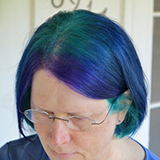The real objection to health insurance reform in America
I was reading Roger Cohen’s New York Times editorial this morning. It made some pretty good points. I particularly liked a point from Friedrich Hayek’s The Road to Serfdom, where he said:
“Where, as in the case of sickness and accident, neither the desire to avoid such calamities nor the efforts to overcome their consequences are as a rule weakened by the provision of assistance — where, in short, we deal with genuinely insurable risks — the case for the state’s helping to organize a comprehensive system of social insurance is very strong.”
In general, Cohen, being originally from Europe, has a good understanding of the European bewilderment at the lack of universal health coverage in the US. He’s also a US citizen and has lived in this country for a number of years and mostly “gets” the US.
But a point from another reader is just slightly shy of the mark, in my opinion:
“In Europe generally the populace in the various countries feels enough sense of social connectedness to enforce a social contract that benefits all, albeit at a fairly high cost. In America it is not like that. There is endless worry that one’s neighbor may be getting more than his or her “fair” share.”
I think that the use of the term “neighbor” above is off the mark. I think the problem in the US is that many Americans don’t consider certain other Americans to be their neighbors. I refer, of course, to the race issue.
I am of the opinion that if we had not had slavery in this country, we’d have universal health coverage. The real problem is that at a deep level, possibly non-conscious, many white Americans don’t really see black Americans, or other Americans of color, as truly American. I noticed a reference from The Daily Dish, to an article in Scientific American, basically an opinion piece, in which David Mirsky cites
At a talk she gave in October 2008 to a group of science journalists, [Harvard University psychologist Mahzarin] Banaji discussed research she did with Thierry Devos, now at San Diego State University, that examined bias against Asians. They found that volunteers linked white Americans more strongly than Asian-Americans with, well, America. Banaji and Devos then decided to do what even they thought was a “bizarre” study: they had people gauge the “American-ness” of famous Asian-Americans, such as Connie Chung and tennis player Michael Chang, versus European whites, such as Hugh Grant.
The study found that white Europeans are more “American” than are nonwhite Americans in most minds.
Yep. That accords with my experience of white Americans. (I’m a white American.)
I think that the reason there’s opposition to many social programs in this country is partly to do with our pioneer heritage, but also a lot to do with not seeing many of our fellow Americans as truly American.
